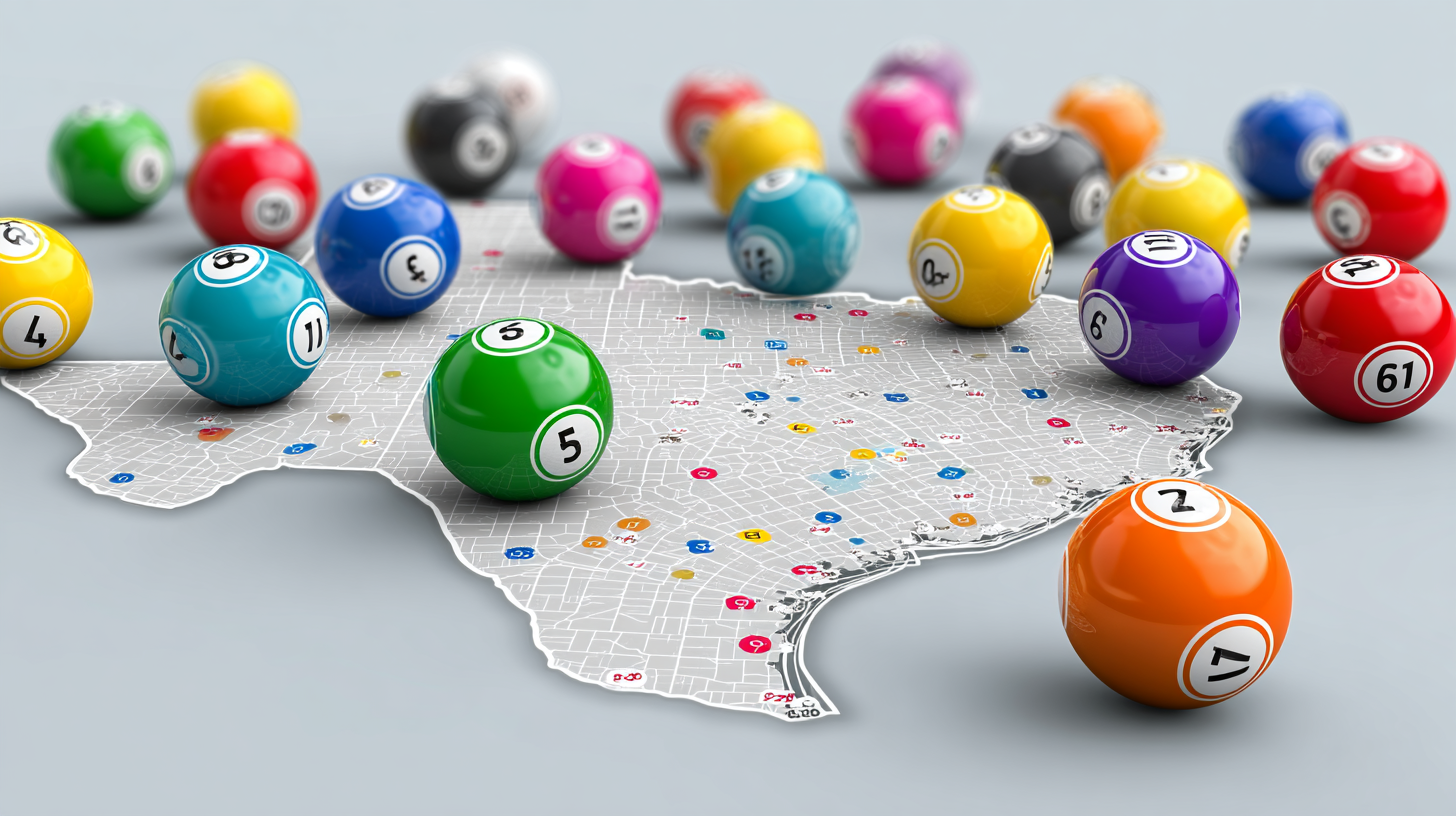Allwyn’s Global Lottery Strategy and U.S. Digital Expansion: The Rise of a New Powerhouse in iLottery
In the ever-evolving world of global lotteries, few names are gaining traction and market share quite like Allwyn. Once primarily recognized as a leading lottery operator in Europe, Allwyn has rapidly transformed into a digitally focused, globally ambitious organization with clear intentions to reshape the lottery and iGaming landscape. As the company intensifies its efforts to expand into the United States, both through acquisitions and digital innovation, industry observers are taking note — and so are regulators, partners, and players alike.
At the heart of Allwyn’s success is its ability to understand the balance between tradition and innovation. Lotteries, by their very nature, are institutions — trusted by the public, often tied to state funding for important programs, and run with a careful eye toward responsibility and compliance. Allwyn respects this legacy, but its leadership also sees the future clearly: digital transformation is not just an advantage; it’s a necessity.
The company’s most significant early headline came from its successful transition into the UK market, where it overtook Camelot as the operator of the UK National Lottery. That was a seismic shift in the industry. Camelot had run the UK lottery since its inception in 1994, making it a household name and a cornerstone of the British lottery scene. For Allwyn to unseat such an entrenched operator signaled not only confidence but capability. See
Allwyn took over full control of Camelot UK in early 2023 after winning the highly competitive license tender — a process overseen by the UK’s Gambling Commission. The transition was not merely about swapping logos or shifting operations. It was about ushering in a new era of modernization. Allwyn pledged to increase the returns to good causes, digitize the lottery experience, improve accessibility, and appeal to a broader, younger demographic — all while maintaining the high standards of integrity and trust associated with the UK National Lottery.
Following the UK takeover, Allwyn also acquired Camelot Lottery Solutions in the United States, the operator of the Illinois Lottery. That move positioned Allwyn squarely within the North American market, giving it not just a footprint, but operational authority in one of the most populous and influential states in the U.S. Through that acquisition, Allwyn inherited a platform, a player base, and a performance history — but also the challenges that come with adapting legacy lottery systems to today’s digital-first consumer expectations.
In a bold and strategic decision, Allwyn rebranded Camelot Illinois to Allwyn North America, marking a clear pivot toward digital lottery operations and signaling its intent to become a leader in the U.S. lottery space. This wasn’t just a name change — it was a corporate transformation. Alongside the rebrand, the company has laid the groundwork for what it sees as the future of lotteries: seamless online integration, mobile-first platforms, and new game formats that meet players where they are.
The next logical step in this evolution was the formation of Allwyn Digital, a new division aimed squarely at leading Allwyn’s digital charge. To helm this effort, the company hired Kresimir Spajic as CEO of Allwyn Digital, a move that sent a clear message to the market. Spajic, a seasoned executive with leadership roles at Betfred U.S., Hard Rock International, and Great Canadian Entertainment, is known for his ability to navigate complex gaming landscapes and scale operations across regulated markets. His appointment is not just a staffing decision — it’s a commitment to making Allwyn a dominant digital force in the iLottery and iGaming sectors.
Allwyn Digital is set to focus on three key verticals: lottery, iGaming, and sports betting, though the immediate priority appears to be digital lottery content. The U.S. is a massive and fragmented market when it comes to lotteries. While every state has its own rules, platforms, and regulatory environments, the demand for convenient, modern lottery play is growing. States like Michigan, Pennsylvania, and Virginia have already embraced online lottery games, showing robust digital revenue streams and higher engagement. Allwyn sees these markets — and others like Illinois and Washington, D.C., where it already operates — as ripe for expansion through its growing digital product portfolio.
The company has already begun making moves in this space. It recently partnered with the DC Lottery to deliver a new collection of e-instant games, providing customized digital content that reflects local tastes while maintaining universal appeal. These e-instants offer quick, engaging gameplay and align well with the preferences of digital-native users. The Michigan Lottery, another leading example of a successful iLottery program, is also working with Allwyn, leveraging its content for online players through a supplier partnership.
However, the broader outlook for online lottery retail in the U.S. remains a complicated issue. While several states have legalized digital lottery sales, the majority still restrict or prohibit the sale of tickets online or through mobile apps. This is not due to a lack of demand, but rather a mix of regulatory caution, political hesitation, and concerns about responsible gaming. Allwyn appears well-prepared to navigate these complexities, armed with a deep understanding of compliance, technology, and localized market dynamics.
That said, online lottery retail is not yet legal in most U.S. states — and unlike casino gambling or sports betting, which have gained significant legislative momentum in recent years, lotteries are often slower to modernize. But Allwyn’s presence — and its partnerships with states like Illinois and D.C. — may help shift the conversation. As younger players demand digital options and states look for new revenue sources without raising taxes, the push toward legalizing online lottery sales is likely to grow.
The financials tell their own story. In Q1 2025, Allwyn’s North American operations generated $71 million in revenue, a modest increase from $69 million the year before. But the adjusted EBITDA declined sharply, falling to $10 million — a 41% year-over-year drop. The company cited less favorable jackpot activity and a lower incentive fee accrual in Illinois as the primary reasons. These results underscore the volatility of lottery economics and highlight why digital diversification is critical. With more stable and engaging online products, Allwyn can smooth out these earnings cycles and introduce recurring revenue from in-app purchases, subscriptions, and digital game entries.
Beyond the numbers, Allwyn’s strategy is also about modernizing the player experience. The traditional weekly lottery ticket bought at a gas station or supermarket is being replaced — slowly, but surely — by dynamic mobile apps, instant-play games, and even social gaming integrations. Allwyn is positioning itself at the forefront of this evolution, ready to provide states with turnkey solutions that comply with regulations while satisfying user expectations.
So, what does the future hold?
The outlook for Allwyn in the U.S. looks cautiously optimistic. While the company still faces hurdles in terms of regulation and market adoption, its strong foundation in Europe, its proven record in the UK and Illinois, and its proactive digital investments put it in an excellent position. If more U.S. states legalize online lottery retail, Allwyn will already be embedded in the ecosystem — ready to deliver content, platforms, and expertise.
In short, Allwyn isn’t just expanding into the U.S. — it’s aiming to redefine what a modern lottery operator looks like. With a blend of heritage, innovation, and digital vision, Allwyn is proving that the future of lotteries isn’t just about bigger jackpots — it’s about better experiences.
And for the millions of players across North America, that future may be arriving sooner than expected.


